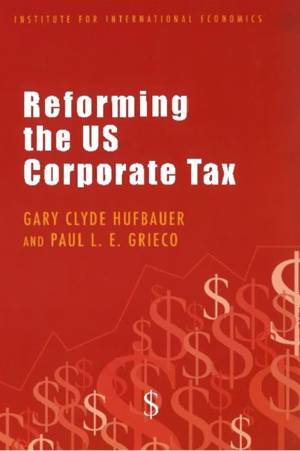
- Retrait gratuit dans votre magasin Club
- 7.000.000 titres dans notre catalogue
- Payer en toute sécurité
- Toujours un magasin près de chez vous
- Retrait gratuit dans votre magasin Club
- 7.000.000 titres dans notre catalogue
- Payer en toute sécurité
- Toujours un magasin près de chez vous
Description
The mainstay of federal business taxation, the US corporate income tax, is riddled with distortions and inequities. As a means of taxing the richest Americans--a popular goal--the corporate income tax is a hopeless failure. Many companies pay no corporate tax, and among those that do, the burden is highly uneven. Meanwhile, the richest Americans command income from numerous sources besides corporate dividends. The distortions and inequities are amazing. Under pressure from business lobbies, Congress legislates deductions and exemptions that twist the corporate tax base far from any plausible financial definition; then Congress enacts "targeted" tax credits to carry out ersatz industrial policies. Faced with a tax terrain of mountains and ravines, corporations employ armies of lawyers and accountants to devise avoidance strategies.
This book proposes to replace the corporate income tax with a tax that has a much broader base at a much lower rate. Two alternatives are explored: the National Retail Sales Tax (NRST) and the Corporate Activity Tax (CAT). To address the issue of regressivity, both alternatives are coupled with measures to preserve the real spending power of households at the lowest income levels.Spécifications
Parties prenantes
- Auteur(s) :
- Editeur:
Contenu
- Nombre de pages :
- 144
- Langue:
- Anglais
- Collection :
- Tome:
- n° 76
Caractéristiques
- EAN:
- 9780881323849
- Date de parution :
- 30-09-05
- Format:
- Livre broché
- Format numérique:
- Trade paperback (VS)
- Dimensions :
- 155 mm x 228 mm
- Poids :
- 204 g







